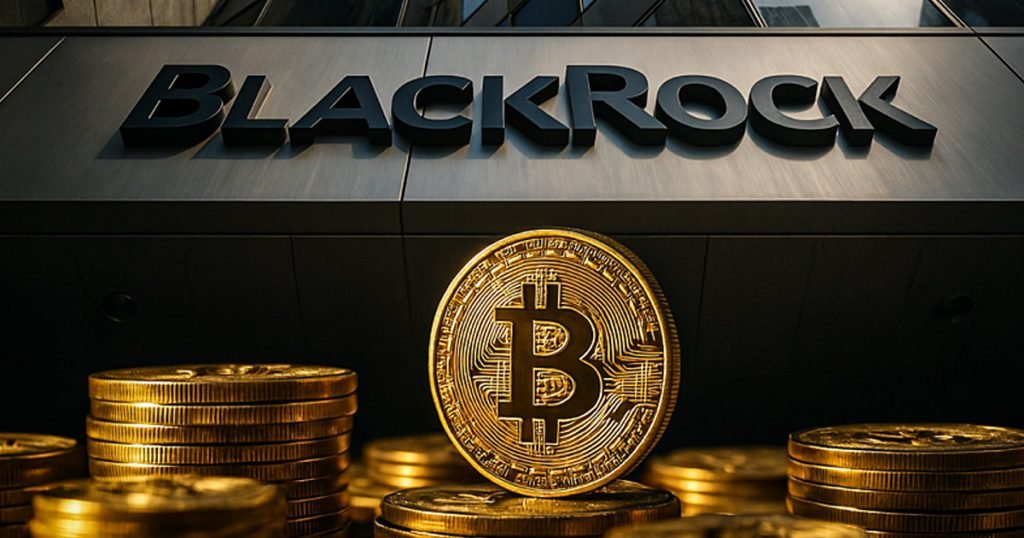BlackRock’s Strategic Expansion into Bitcoin: A Game Changer for Institutional Investment
BlackRock, one of the world’s largest asset management firms, has taken a significant step into the cryptocurrency space by dramatically increasing its exposure to Bitcoin through the iShares Bitcoin Trust (IBIT). Since the launch of this exchange-traded fund (ETF) in January 2024, BlackRock’s Global Allocation Fund has ramped up its holdings by an astonishing 1,810%. According to a recent filing with the US Securities and Exchange Commission (SEC) dated March 2, the fund held 821,664 shares of IBIT as of January 31, which valued at approximately $47.4 million. This move illustrates not only the growing acceptance of Bitcoin in mainstream finance but also BlackRock’s strategic positioning in a rapidly evolving market.
The Surge in Bitcoin Holdings
BlackRock’s increasing Bitcoin holdings reflect a broader trend of institutional accumulation of cryptocurrencies. As of the end of the first quarter of 2024, the Global Allocation Fund held just 43,000 shares of IBIT, demonstrating a remarkable rise in interest over a short period. More recently, this filing indicates that Bitcoin allocations have surged by 91% since the end of the third quarter of 2024, when the fund reported 430,770 shares of IBIT, valued at just over $17 million. This significant increment illustrates a strategic long-term commitment to Bitcoin, implying that BlackRock views digital assets as essential components of its portfolio.
Incremental Growth Over Time
The steady increase in Bitcoin exposure has been remarkable, with BlackRock tripling its holdings from the 198,874 shares recorded at the end of the second quarter. The gradual accumulation reflects a thoughtful approach to integrating Bitcoin within a diversified portfolio, which currently manages assets worth approximately $15.8 billion. The fund now allocates 0.25% of its portfolio to Bitcoin via IBIT, an increase from 0.1% reported in October. This calculated growth indicates a burgeoning confidence in the stability and potential of Bitcoin as an investment vehicle.
BlackRock’s Broader Market Influence
Furthermore, BlackRock’s incorporation of Bitcoin into its estimated $150 billion model portfolio, targeting a 1% to 2% allocation to IBIT, signals a pivotal shift in how institutional investors can allocate resources to digital assets. Such a strategy could encourage other investment firms to rethink their stance on cryptocurrencies. By including Bitcoin in its model portfolio, BlackRock not only diversifies its investment strategy but also exemplifies how institutions can approach cryptocurrency while mitigating risks associated with high volatility.
The Role of Spot Bitcoin ETFs in Institutional Strategies
The rising interest in Bitcoin ETFs, particularly in the context of diversified institutional investment strategies, is further buttressed by a recent report from River. The report indicates that hedge funds and registered investment advisors have markedly increased their Bitcoin exposure through ETFs by approximately 357% in 2024, reaching a total of $34.3 billion. This growing inclination towards Bitcoin ETFs suggests that financial institutions are increasingly recognizing the benefits of these investment vehicles, which offer unique advantages such as liquidity and regulatory compliance while minimizing direct exposure to market volatility.
Conclusion: The Future of Institutional Investment in Bitcoin
The recent activities of BlackRock may indeed represent a new chapter in the relationship between traditional finance and the cryptocurrency market. The significant increase in Bitcoin holdings by its Global Allocation Fund reinforces a rising trend among institutional investors towards integrating digital assets into established investment frameworks. As more firms follow suit, we can expect Bitcoin to play an increasingly prominent role in diversified portfolios, fundamentally changing the landscape of finance. BlackRock’s bold venture into Bitcoin through IBIT not only reflects an adaptation to market trends but also positions the firm at the forefront of a potential financial revolution. This shift is not just a passing phase; it’s indicative of a growing acceptance that Bitcoin and other digital assets could become core components of institutional asset management in the years to come.


